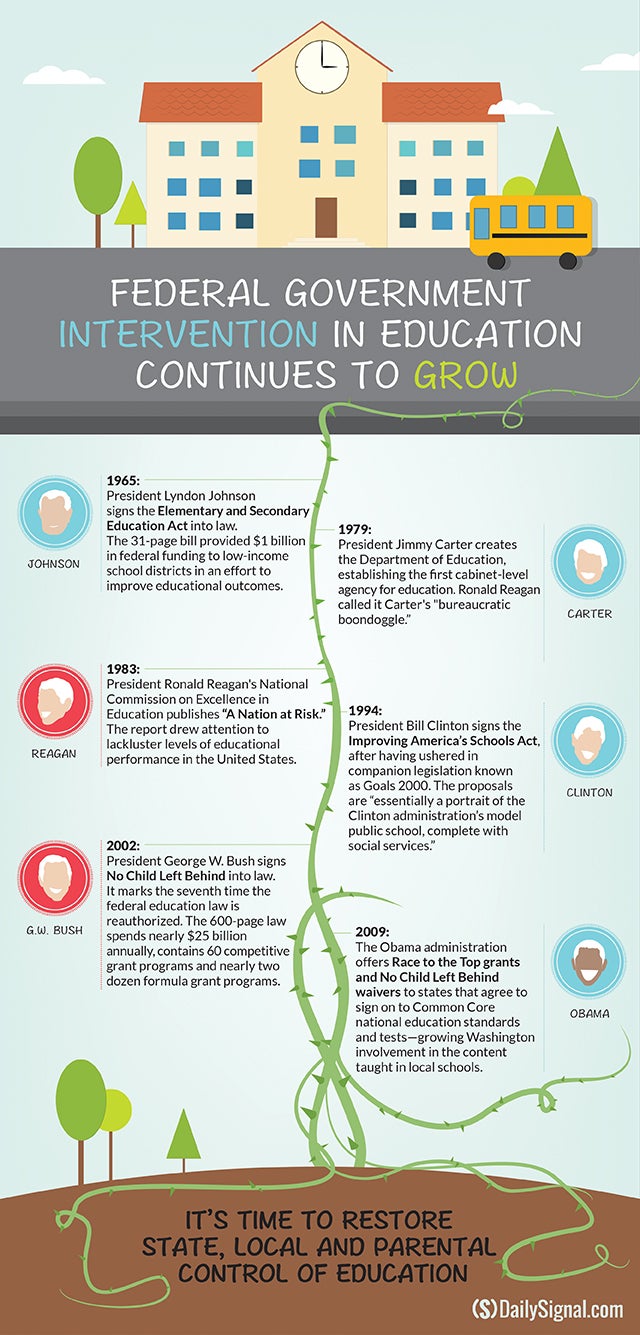Nearly 50 Years of Growing Federal Intervention in Education, Explained in One Picture
Brittany Corona / Nicole Rusenko /
America has seen a half-century of growing federal intervention in education. This centralization, however, has not led to improved educational outcomes.
According to the National Assessment of Educational Progress long-term-trend assessment, 17-year-old students today perform no better in reading and math than 17-year-olds did in the 1970s. According to the main NAEP assessment, often referred to as the nation’s “report card,” only 26 percent of 12th graders are proficient in math; just 38 percent of high school seniors are proficient in reading.
What began with the first major federal intervention in education through President Lyndon Johnson’s Elementary and Secondary Education Act in 1965 over the decades expanded into the more than 600-page No Child Left Behind Act. The Obama administration has continued the trend of growing federal intervention in education through billions in new grant programs as well as offering waivers from No Child Left Behind in exchange for states adopting administration-approved education policies.
Nearly 50 years of growing federal intervention in education hasn’t improved outcomes. Instead of continuing to increase programs and spending, it’s time to restore state and local decision-making in education. Most importantly, it’s time to empower every family with the freedom to choose the education that meet their children’s unique learning needs.

